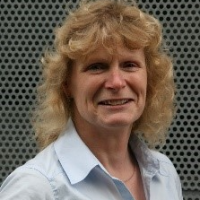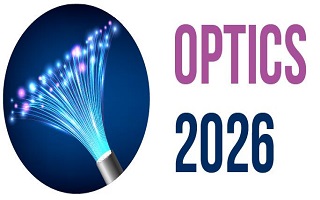3rd International Conference on
Optics and Laser Technology
October 29-30, 2026 | Berlin, Germany

Optics 2026

Ernst-Abbe-University of Applied Sciences Jena, Germany
Abstract:
The integration of conductive tracks on natural fibers using ultrafast laser processing represents a transformative approach for developing advanced smart textiles. This study investigates the application of femtosecond laser-based selective activation (LSA) on natural fibers, specifically woven cotton, to create robust, flexible, and conductive pathways. The LSA process comprises three key steps: laser activation, palladium nucleation, and electroless copper plating. By optimizing the laser parameters, including fluence, pulse spacing, and line distance, homogeneous copper tracks were achieved without compromising the mechanical properties of the fibers.
Experimental results demonstrate that pre-treatment steps, such as washing, significantly improve the selectivity and quality of the metallization. Process optimizations included increased palladium concentration and extended exposure times during the plating process, resulting in enhanced adhesion and conductivity of the copper layers. Electrical conductivity measurements revealed stable performance across a range of geometries, including lines, grids, and patterns designed for sensor integration.
This research highlights the potential of ultrafast laser processing for enabling natural fiber-based smart textiles suitable for diverse applications, such as health monitoring, wearable electronics, and eco-friendly protective clothing. Challenges remain in ensuring washability and long-term durability, as well as integrating microelectronics and sensors for real-time data processing. Future studies will focus on scaling the process for industrial applications and exploring additional functional layers, such as insulating or energy-harvesting materials, to broaden the scope of smart textile technology.
Biography:
Andrea Barz studied chemistry at the Friedrich Schiller University in Jena. She wrote her doctoral thesis in the field of glass chemistry on spectroscopic and radiographic investigations of the structure of crystalline and glassy phosphates. Since 2006, Andrea Barz has been working as a research assistant in the Production Engineering and Automation working group. Currently, she is working in the research fields of optical technology and laser material processing and material analysis.
